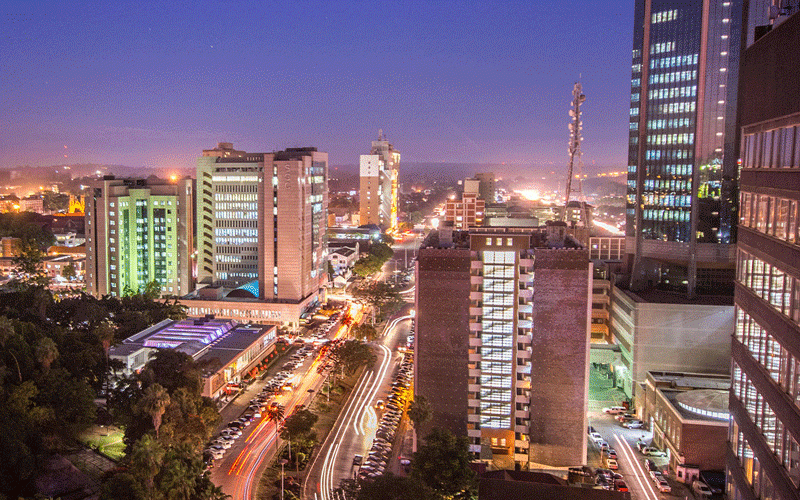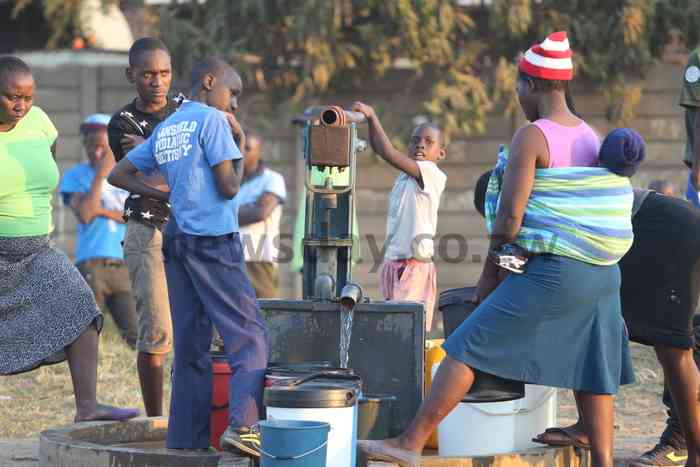
HARARE’s central business district (CBD) infrastructure is under threat of decaying as more companies move offices to suburban areas, property analysts have warned.
Over the past few years, businesses have been exiting Harare’s CBD due to soaring rentals, increased congestion, high parking fees and its heavy traffic enforcement.
Most of these companies, which also include fuel operators, in some instances, are moving into low-density suburbs like Belvedere, Milton Park, Avondale, Alexandra Park, Borrowdale, and Eastlea.
Knight Frank Zimbabwe Property negotiator Nyasha Komberero said while the low density offers more convenience compared to the CBD, if left unchecked this could lead to a town planning catastrophe.
“Failure is the long-term effect. I think we have seen, for example, Chitungwiza has almost hit one million people and it wasn’t meant for that. We have burst pipes every now and then. It is the same system that is going to come to Harare,” he said.
“The pipes that are in Borrowdale are the same pipes that are in Chitungwiza but what works is the carrying capacity so if we do not have any initiatives that are real to deal with these issues, to solve these issues, of an increase in population, which then entails that we need an increase infrastructure to support the population, then we are going to have a falter and it is going to fail.”
Komberero said the infrastructure has a limit to what it can take.
Knight Frank Zimbabwe is currently in the process of coming up with a paper examining the scope of companies moving into the low-density areas and its impact.
- Byo armed robber in court
- Woman jailed 12 years for indecent assault
- Magistrate jailed 3 years for abuse of office
- Zim’s poor batting hands India series
Keep Reading
According to Knight Frank’s 2023 second quarter Africa Offices Market Dashboard, it confirmed a boom in office suburban space.
“Conversely, suburban offices are experiencing a boom in demand, leading to an average occupancy rate of 90% to 100% and rental prices ranging from US$8 to US$13 per square metre, with relatively higher yields averaging 8%,” reads findings from the report.
“Harare’s office sector is categorised into the central business district (CBD) and the suburban office market, with the latter outperforming the CBD, owing to the policy position allowing residential suburbs in proximity to the CBD to host businesses.”
Knight Frank said as a result, many occupiers had migrated from the CBD to these residential suburbs, which offer advantages such as ample parking and reduced congestion.
“Residential suburbs, such as Eastlea, Hillside, Milton Park, Belvedere, Belgravia, Avondale, and Alexandra Park have benefited from the shift in occupiers’ focus,” it said.
Knight Frank noted that this migration towards suburban locations had unsurprisingly created an oversupply of offices in the CBD, resulting in high vacancy rates and low lease rates, ranging between US$4 to US$8 per square metre.
“To improve occupancy rates, some property owners are repurposing their CBD office buildings for alternative uses, such as hotels, lodges, and long-stay apartments,” Knight Frank noted.
Businessdigest understands that the Harare City Council is granting office or building licences to firms to move into low density areas.
Knight Frank Africa research analyst Boniface Abudho said one of the challenges was that there were not many property investment incentives to encourage developers to come into the country.






